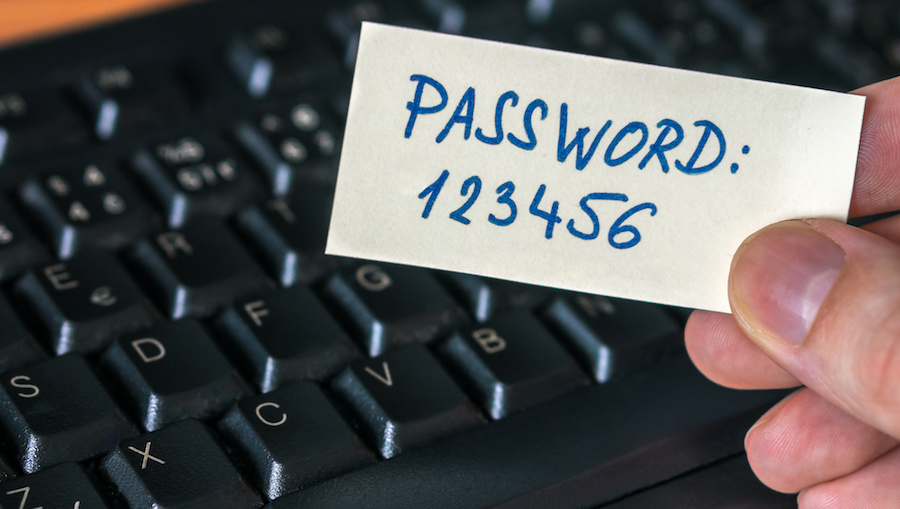Due to the widespread uptake of digital products and services, passwords are now inevitable. Anyone who at least has a smartphone is familiar with the need for passwords. Many things are now done online, and most of life will continue to be so. Doing things online brings to the fore the subject of passwords. Passwords are primarily an issue when you consider the rise in cybercrime. Cybercrime basically refers to crimes committed using or over computer networks. Most cyber-attacks are successfully done due to weak passwords. That is why today we must discuss the types of passwords you should avoid.
The Tenets Of Cracking Weak Passwords
Weak passwords are the kind of passwords that are easy to crack. One way of doing this is to try and guess someone’s password. Usually, many people derive passwords from their life details. Then it so happens that there are also commonly used weak passwords. For some weird reasons, many people tend to choose such passwords. For example, 123456 is a shockingly common password all over the world.
In fact, a recent study found that roughly 8 in every 10 Europeans use that as their password. Another example of a commonly used weak password is password. Thus one can guess such passwords. An even faster way is to use hacking software with a database of commonly used passwords. That, combined with bots, can be used to crack weak passwords in seconds. This should give you an idea of why you should not use weak passwords.
Commonly Used Weak Passwords
Globally, the most used weak passwords are 123456, 123456789, 12345, qwerty, password, 12345678, 111111, 123123, 1234567890, and 1234567. These are the top 10 (in particular order) most used weak passwords worldwide. Interestingly, last year saw password become more popular than 123456. Other commonly used weak passwords are 000000, 555555, 666666, 123321, 654321, 7777777, and 123. These are just some of the hundreds of commonly used weak passwords. These kinds of passwords can be cracked in a second or less. Avoid such passwords!
Do Not Relate Passwords To Your Life In Any Way
Many people find it easy to create passwords that relate to their personal lives. It can be the names of loved ones. It can be dates of birth. Sometimes it can be phone numbers. Even when it comes to security questions, most people make it obvious. I think it is best never to use security questions because they are usually too revealing. Imagine a security question about your favourite sport. Someone might actually know and be able to figure it out.
What To Consider To Create Strong Passwords
There are fundamental principles that inform the tenets of creating strong passwords. Here are some of them:
Composition And Variation Considerations
The password must contain various alphanumeric characters, symbols, and special characters. Bear in mind that at least one must be in uppercase. Using uppercase has been found to make it difficult for one to crack passwords exponentially. Mixing uppercase and lowercase on your password can make it even more difficult.
Length Considerations
It is also advised to make it longer to make it stronger. Usually, the requirement is to be at least eight characters long. Many people usually stick to just eight characters. Increasing the number of characters increases the strength. For instance, a 16-character password will be significantly harder to crack.
Desist From Using Intelligible Words
When creating a password, do not use actual words that can be figured out. It is better to use unintelligible words that are difficult to make sense of. For example, intrepid is an intelligible word (it means to be fearless or bold). However, if you jumble it up, you can come up with tniperdi instead. Better still, you can use a random string of letters, e.g. ajqrvztb. When you then combine that with other characters, it becomes a solid password.
Storing Passwords Is Smart (Be Smart About It, Though)
When you look at what we discussed, you will notice it might not always be easy to create easy-to-memorize passwords. You might want to find a way to store them for easy reference when you need them. Do not use easy-to-access means. For instance, most people write their passwords on sticky notes or in notepads that they put in a drawer. Some save them in their note app on their phone. Some can even email their passwords to themselves for reference. I recall one cybersecurity expert who recounted one particular incident. She is paid to test security systems for vulnerabilities.
She was supposed to figure out how to break into a location and retrieve a particular file from a computer in a specific room. She managed to crack her way in. It turns out the password to log into the computer was written on a piece of paper stuck on the underside of the desk. The piece of paper clearly written password with the password written below those words. It is best to use password managers in the form of software or mobile apps. They come with encryption, so they are safer for password storage.
This is a subject I wish all of us would appreciate more. It is astounding how so many people take passwords so lightly. I understand that most people seek to make it easy to remember passwords. However, that should not compromise password strength. Password strength is of much greater importance. This year alone, billions of records are projected to be stolen online. This is theft that weak passwords will directly cause. Do not be a victim; take it to heart and apply what you learnt today.








